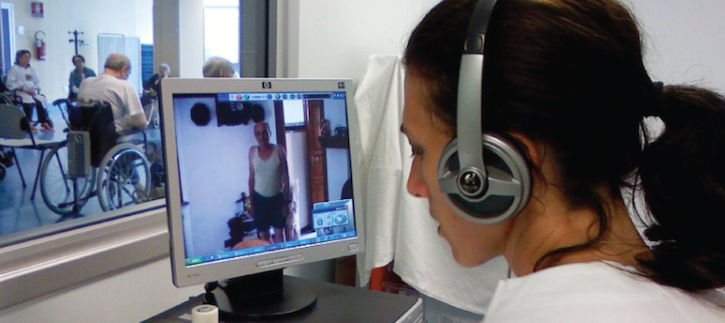UPMC Forms Telemedicine Company for Infectious Diseases
With a shortage in specialists, the service could help address an issue that costs healthcare billions of dollars a year.

Photo/thumb have been modified. Courtesy of Breath ERS Journal.
University of Pittsburgh Medical Center formed a telemedicine-enabled company, Infectious Disease Connect, to help hospitals address the shortage of infectious disease specialists, according to an announcement yesterday.
The company aims to improve outcomes, reduce transfers and keep patients in their own communities for treatment.
“As diagnosing and treating infectious diseases and ‘superbugs’ become increasingly complex, having access to infectious disease experts will be essential for every healthcare facility,” said David Zynn, president of Infectious Disease Connect.
UPMC’s health system has provided infectious disease telemedicine services to patients for the past five years. Infectious Disease Connect jumps off that model, bringing a team of specialists to hospitals in a more cost-effective manner and providing primary expertise, backfill support and staff augmentation.
Healthcare-associated infections affect between 5 and 10% of patients and result in more than $40 billion annually in hospital costs. But with the shortage of specialists, many hospitals and smaller facilities are struggling to address these issues.
Through such telemedicine services, UPMC said it has seen a reduction in patient transfers to tertiary facilities, a reduction in healthcare-associated infections, improved patient outcomes and a reduction of antibiotic misuse.
“With the growing threat of drug-resistant organisms and costly government penalties for healthcare-associated infections, it has never been more critical for hospitals to properly diagnose, treat and prevent such infections,” said Rima Abdel-Massih, M.D., chief medical officer for Infectious Disease Connect.
Infectious Disease Connect serves 10 UPMC and five non-UPMC hospitals in Pennsylvania and surrounding states.
The company is staffed by UPMC infectious disease physicians to serve the health system. As it expands into new markets, Infectious Disease Connect plans to hire additional physicians to provide patient consultations.
In addition to the newly launched company, UPMC offers a telehealth program that connects small and rural community hospitals and outpatient locations to specialists. The healthcare organization also partners with a major grocery chain to bring telemedicine services to patients in the retail setting.
Get the best insights in digital health directly to your inbox.
RELATED
How Telemedicine Can Better Address the Opioid Crisis
Telepsychiatry Offers More Accessible Care to Rural Populations
Podcast: Adoption of Healthcare Tech in the Age of COVID-19 with Dr Kaveh Safavi
June 22nd 2021Kaveh Safavi, MD, JD, global health lead of Accenture Health, discusses how the pandemic influenced the speed at which healthcare organizations adopted new technologies and how this adoption is impacting patient care.














